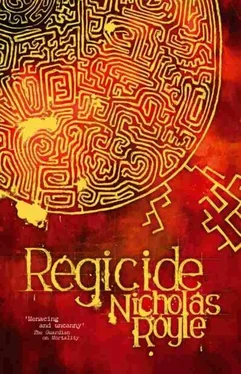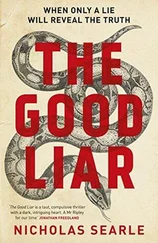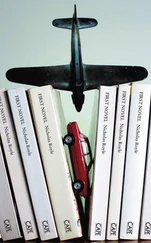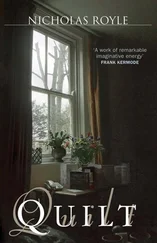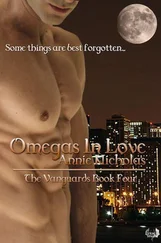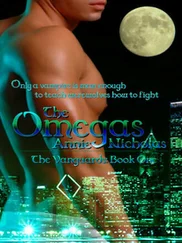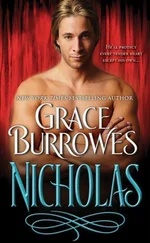If not that though, I started thinking as we got back to the table, what was wrong with him?
I found out a couple of weeks later. I crept downstairs one Wednesday night and listened outside the lounge door as my mother and father talked. They still had the television on and the door was closed, so it was not easy to follow their conversation. But I did manage to hear the odd word and half-sentence. When I heard the word ‘Christie’s’ I experienced a sudden, awful sinking feeling in my stomach and a chill spread from there to grip my entire body. I tiptoed upstairs so the sound of crying wouldn’t alert them to my presence.
Christie’s was the cancer hospital where several of my mother’s relatives had died. My father’s aunt, also, had spent her last two weeks there. I’d never been, but the name of the place terrified me. It was synonymous with cancer, which in those days and in my experience meant suffering and death.
It had been at the back of my mind, buried deep beneath layers of denial and fear, ever since I’d known my father was ill. Even to utter the hospital’s name was to tempt fate and hasten the inevitable.
I spoke to my mother the following morning while my father was out of the house.
‘Dad’s got cancer, hasn’t he?’ I said. I was hurting too much to realise how insensitive I was being to my mother’s feelings. She looked at me for a moment, tears brimming at her eyes, but I felt angry. I wanted to be treated like an adult.
‘He has, hasn’t he?’ I persisted.
‘No, Carl, he hasn’t,’ my mother said, kneeling down and holding my arms.
‘He has leukaemia. It’s like cancer but it’s different.’ She was trying to make it seem better than it was by giving it a name which wasn’t cancer — a word which in our house was usually lip-read — but because of the Christie’s connection I knew exactly what kind of illness my father had.
‘Is he going to die?’ I asked, my voice on the edge of breaking.
‘I hope not, love. I hope he’ll be all right. If you hope so too, as hard as you can, it might help him.’
I started to cry. Standing there in front of my mother I just gave in and the tears tumbled from my eyes. She gathered me into a fierce hug. I couldn’t stop once I’d started. My eyes hurt, I was short of breath, my head ached and still the tears fell, soaking my mother’s shoulder. She stroked my hair and said, ‘What, love, what?’ when I tried to speak.
‘I’m sorry,’ I said. ‘I’m sorry. I’m sorry.’
‘Ssh, ssh. Stop crying. Try and be strong for your father. It’ll help him.’
By the time he came back inside I was in my room pretending to be engrossed in making floats and my mother was polishing the brasses in the lounge.
I didn’t tell my father I knew but I gathered that my mother had told him. We never spoke about the disease or the hospital and I did my best to be strong. At night after I’d gone to bed I’d slide out and kneel on the floor and pray for him, whispering the words so they wouldn’t be heard downstairs but would be loud enough for God to hear if He was listening. I didn’t believe in God but if my father died and I’d left a stone unturned I knew I’d never forgive myself.
A few days later my mother told me my father had been receiving treatment for months. When I thought he’d been doing shift work he was actually walking to Navigation Road, getting a train to Stretford, then a 22 bus to Christie’s. He didn’t take the car because the treatment left him feeling too groggy to drive home afterwards. And he refused the ambulance they offered to take him home in so that I wouldn’t look out of my bedroom window and get the shock of my life.
When I woke up in the abandoned ice rink, slumped on a wooden bench, Stella had come off the ice and was wearing a big old blue sweater. She’d exchanged her skates for a pair of heavy boots, and a pair of thick woolly tights. She made me a cup of what passed for coffee in the City. It tasted like dust and was pitch-black — ‘There’s no milk’ — but it was hot and wet.
‘What are you doing here?’ I asked her when we’d been talking for a while.
‘Most people can’t remember how they got here,’ she said. ‘They’ve just blanked out on it. But I still can. The details have gone but I can still just about remember the big picture.’ She sipped her own coffee. ‘I was a skater. It was all I lived for. I was no good at anything else and I dreamed of skating for England. They wrote about me in the local paper. I was prodigiously talented, they said. But I went too far. I did a quintuple salchow one day at the local rink. It’s not supposed to be possible. It means you spin five times in the air. It’s just not possible. But I did it. I got enough height and I was light enough. Somehow I did it. I knew I’d done it. I felt sick when I landed.
‘Only one person had seen me. I saw this woman staring at me like she’d seen a ghost. Her mouth hanging open, her eyes all wide. She’s here now as well. I’ve seen her a couple of times but she doesn’t remember a thing. I tried to talk to her but she was suspicious so I’ve steered clear ever since.’
‘How did it happen?’ I asked. ‘How did you end up here?’
‘On the way home from the ice rink I was grabbed by someone hiding in bushes next to the railway line. I can’t remember anything after that.’
‘Haven’t you tried to get back?’
‘It’s impossible. There’s no way back.’
‘There must be,’ I insisted.
‘People have gone mad trying. It doesn’t matter how far they walk, there’s no escape route. It’s hard enough to get out of the City and even if you manage that you’re faced with miles and miles of the Waste. People have wandered there for up to a year and stumbled back into the City completely mad. The contours change and you lose all sense of orientation. Only two people have made it beyond the Waste and into the Dark.’
‘What the fuck is the Dark?’ I asked.
‘The Dark defies all the laws of nature. It’s always dark, as if it were night-time, only day and night don’t have any meaning there. At least we’ve got light and dark in the City. There are no dimensions to the Dark. It just goes on and on in all directions, like space. If you do go into the Dark your only hope is the one in a million chance that you accidentally wander back into the Waste. There’s no way out the other side because there is no other side.’
‘Who are the two people you mentioned who’ve been into the Dark? Did they come back? I want to meet them.’
‘You can’t. One man’s in an institution. Hasn’t spoken a word of sense in five years. The other one escaped and is roaming the City somewhere.’
‘Why didn’t I come through the Dark on my way into the City?’
‘It’s a one-way thing. It’s only there going out.’
‘How do you know all this?’ I asked, pulling my squashed pack of Camels from out of my boot and lighting one. They were almost all gone.
‘I’m an outlaw. I’m outside society. I don’t take the drugs, don’t read the propaganda. I’m not on record. Some people slip in through the net. Like you did.’
‘Only now they’re after me.’ I took a deep drag and felt my head swim.
‘They’ve been after me for years. You just have to remain one step ahead. You have to think like them. The point is, they’re only really after one person — whoever it was who killed the bloody king — but no one is above suspicion. You’re assumed to be guilty here until proven innocent. And nobody’s going to expend energy on your behalf trying to prove you innocent. Everyone remains guilty of harbouring the assassin until he is caught and justice is done.’
‘I can guess what form that might take,’ I said.
Читать дальше
